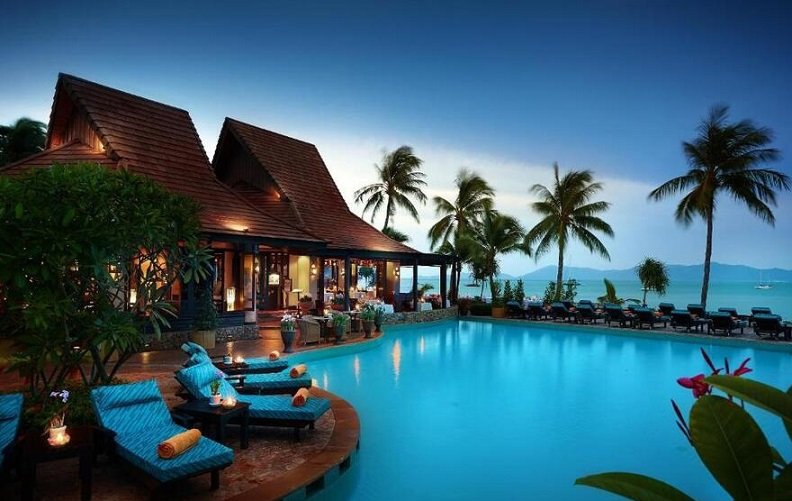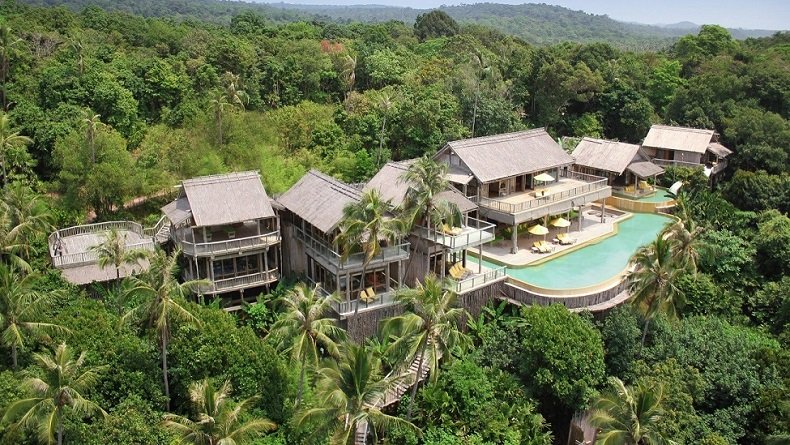Key points
- This Thailand Hotel News report reveals that the initiative is designed to inject energy into the economy during the crucial high season and sustain the recovery well into the following year.
- The move aims to stimulate hotel modernization projects ahead of the tourism peak, encouraging operators to enhance guest facilities, upgrade interiors, and expand amenities to stay competitive in Thailand’s dynamic hospitality landscape.
- In addition to supporting hotels, the cabinet extended the reduced excise tax rate for entertainment venues—including pubs, bars, nightclubs, and lounges—from 5% instead of 10% for the entire year of 2026.
Thailand Hotel News: Government Push to Revitalize Tourism and Domestic Spending
Thailand’s cabinet has officially approved an ambitious five-point tourism stimulus plan aimed at boosting domestic travel, hotel occupancy, and economic momentum into 2026. The package, endorsed under Prime Minister Anutin Charnvirakul’s leadership, offers generous tax deductions for individuals and companies, lower excise duties for nightlife venues, and incentives for hotel renovations. The government expects these measures to lift GDP by 0.04% while sacrificing around 5 billion baht in tax revenue. This Thailand Hotel News report reveals that the initiative is designed to inject energy into the economy during the crucial high season and sustain the recovery well into the following year.

Thailand’s new stimulus plan offers double tax deductions and hotel upgrade incentives to revitalize tourism and strengthen the hospitality sector.
Image Credit: StockShots
Double Tax Deductions for Hotel Upgrades and Renovations
Among the most impactful measures is the double tax deduction for hotel renovations and upgrades. Between 29 October 2025 and 31 March 2026, hotels operated by companies or partnerships can deduct twice the cost of eligible improvements, including structural expansions and new furnishings, while routine repairs remain excluded. This incentive allows depreciation to be calculated first, followed by an additional deduction spread across 20 accounting periods. The move aims to stimulate hotel modernization projects ahead of the tourism peak, encouraging operators to enhance guest facilities, upgrade interiors, and expand amenities to stay competitive in Thailand’s dynamic hospitality landscape.
Tax Deductions to Spur Domestic Travel
The package also includes generous personal income tax deductions to stimulate local tourism. Thai citizens can claim up to 20,000 baht in travel-related expenses—covering accommodation and dining—during the period between 29 October and 15 December 2025. The first 10,000 baht can be supported by traditional or e-tax invoices, while the second half requires e-tax documentation. Trips to secondary provinces qualify for a 1.5-times deduction, effectively encouraging travellers to explore lesser-known destinations. Authorities project around 140,000 claimants, which could generate an additional 2.8 billion baht in travel spending and support thousands of hotels and restaurants across the nation.
Corporate Incentives for Events and Conferences
Registered companies and partnerships will also enjoy deductions on expenses related to seminars, corporate training, and conferences held within Thailand during the same travel period. Eligible costs include accommodation, venue hire, transport, and guided tours. Events hosted in secondary cities qualify for double deductions, while those in major destinations receive a 1.5-times deduction. Around 1,500 companies are expected to participate, generating over 315 million baht in additional spending. These measures are expected to give a much-needed boost to Thailand’s MICE (Meetings, Incentives, Conferences, and Exhibitions) segment—an essential driver of hotel and resort revenues.

Among the most impactful measures is the double tax deduction for hotel renovations and upgrades
Image Credit: StockShots
Accelerated Public Sector Spending to Boost Occupancy
The Thai government has also instructed state agencies, enterprises, and local administrations to accelerate spending of at least 60% of their fiscal 2026 training and seminar budgets between October 2025 and January 2026. Historically, only a small fraction of these funds are used early in the fiscal year. By advancing these disbursements, the government hopes to increase hotel bookings, fill conference rooms, and ensure steady income for hospitality businesses during the year-end period. This move aligns with the broader goal of decentralizing tourism by directing more events and spending to secondary provinces, thus balancing the benefits of tourism growth across the country.
Nightlife and Entertainment Industry Gains from Lower Taxes
In addition to supporting hotels, the cabinet extended the reduced excise tax rate for entertainment venues—including pubs, bars, nightclubs, and lounges—from 5% instead of 10% for the entire year of 2026. The Excise Department will continue working with local authorities to register more nightlife businesses and expand the tax base. This measure aims to sustain the vibrancy of Thailand’s nightlife sector, which is closely intertwined with the country’s tourism appeal, particularly in hotspots like Bangkok, Pattaya, and Phuket.
A Strategic Boost for Long-Term Tourism Growth
According to Finance Permanent Secretary Lavaron Sangsnit, domestic tourism accounts for about 24% of private consumption and nearly 14% of Thailand’s GDP. Without timely intervention, local tourism was projected to contract by 2.7% in 2025 after an 8.4% expansion in 2024. The government’s multi-pronged stimulus approach—combining tax deductions, corporate incentives, accelerated spending, hotel renovation allowances, and nightlife tax reductions—is expected to reinvigorate the sector and preserve jobs across the hospitality and tourism value chain.
The long-term implications of this package extend beyond temporary financial relief. By encouraging domestic travel, business events, and property upgrades, Thailand is setting the stage for a more resilient tourism ecosystem. The strategy not only supports hotel operators during the high season but also lays the foundation for sustained growth and reinvestment throughout 2026. As both travelers and hoteliers take advantage of the incentives, the ripple effects are likely to strengthen regional economies, improve infrastructure, and ensure Thailand retains its position as one of Asia’s premier tourism destinations.
For the latest on the Thai hotel industry, keep on logging to Thailand Hotel News.

